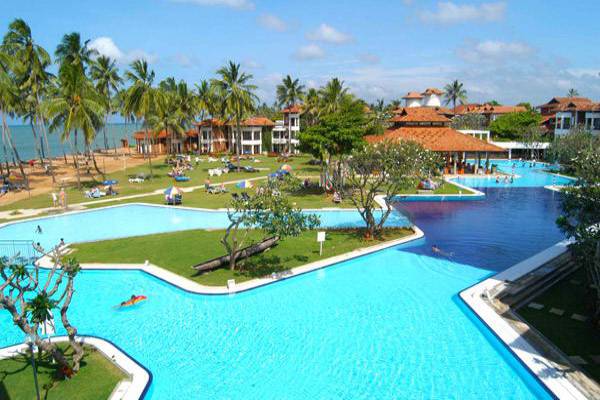Despite the adverse impact on business, the tourism industry yesterday supported the decision taken by the Government to impose stricter travel guidelines considering the current spike in COVID-19 cases. The leading tourism organisations — The Hotels Association of Sri Lanka (THASL) and Sri Lanka Association of Inbound Tour Operators (SLAITO) – assured that they would abide by the protocols in place to support the country to overcome the current COVID-19 situation.
The Ministry of Health (MOH) on Tuesday imposed new health guidelines for all overseas arrivals following a sharp uptick in COVID-19 cases in the country. According to the new guidelines, all overseas arrivals, including Sri Lankans, should undergo a mandatory 14-day quarantine at Government-identified facilities, and this measure will be irrespective of vaccine status.
“It is yet another challenge for the tourism industry that is just getting back to normalcy, but it is not something unique to our country — it is worldwide. No one can predict how the virus is behaving and every country is struggling and experimenting as there is no fool proof method to battle the virus,” THASL President Sanath Ukwatte told the Daily FT.
Noting that the new guidelines are impacting the industry negatively, he pointed that the industry understands the concerns of the Government to keep businesses afloat.
“As a responsible industry, we understand the current situation in the country and we fully support Government decisions taken to protect the people of the country,” Ukwatte added.
Despite the new travel guidelines, he said that there were no major cancellations as many of the key markets such as India, China, and the UK were still not operating as usual.
“India is grappling with severe COVID-19 infections daily and China and the UK also had travel restrictions. Although there were some cancellations, it is now understood by the customer as well as the service providers that such situations might occur on a regular basis during a pandemic and the policy of refund is now common.”
Ukwatte also said that during this pandemic hoteliers have found alternate ways to keep their businesses above water.
“Around 20 hotels have now been converted into intermediate care centres (ICCs) and the numbers are increasing. The ICCs are operated in collaboration with private hospitals. The hoteliers have been very supportive to the Government in fighting the pandemic,” he stressed.
However, he pointed out that the income generated through such operations were not sufficient considering the overheads.
“The ICCs are not making any profits, they are just providing a service at an affordable price. The hoteliers providing such services are incurring heavier costs to retain staff, provide them with personal protective equipment (PPE), electricity, water and dispose of garbage (the PPEs and other waste needs to be disposed separately).”
SLAITO President Thilak Weerasinghe said the Government was taking measures to the best of their ability to ensure that the economy will function uninterrupted.
“The entire world is going through this pandemic and counties have imposed many restrictions. There is no rule book to anticipate a sudden outbreak unless people also act according to the health protocols,” he added.
Weerasinghe admitted that the new travel restrictions would once again hamper the revival process of an industry that has been striving for normalcy.
“There is nothing we can do other than adhering to the health guidelines in this pandemic. Our tourism industry is known for its resilience and we will overcome this too,” he said.
As the vaccine status for travellers is no longer eligible, as per the new guidelines, he said there will be a marginal drop in tourist arrivals, particularly from the Eastern European countries like Kazakhstan and Ukraine.
Arrivals during the first four months fell by 97.3% to 13,797 from a year earlier, according to data released by the Sri Lanka Tourism Development Authority (SLTDA). Tourist arrivals fell by 9% in April to 4,168 in comparison to March, largely influenced by the global and local spike in COVID-19 cases.
The COVID-19 pandemic has raged from March 2020 onwards and the latest drop in arrivals reinforces the continuous struggle of the tourism industry.
(FT)

